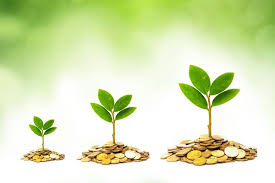By Paul Sixpence
NATIONAL and international governmental officials, bankers, civil society and private equity holders gathered in Victoria Falls, Zimbabwe from 5 – 7 July 2023 to discuss the carbon credits landscape and opportunities for investment.
What are carbon credits?
Carbon credits – or offsets – are used by companies, governments or people to compensate for the greenhouse gas emissions they generate themselves.
Carbon credits trading and regulation
Despite being worth an estimated US$500 million per year, the carbon credits market in Zimbabwe remains largely unregulated and voluntary.
“The country does not have legislation and policies that regulate carbon trading,” said Farai Maguwu, Executive Director at Centre for Natural Resource Governance (CNRG). “Often there have been reports of serious discrepancies when it comes to claims of emissions reduced or avoided.”
Climate finance experts project that the carbon offsets industry has the potential to finance local level adaptation and resilience projects.
Benjamin Chimutengo, Chief Executive Officer (CEO) of AVCCM highlighted the need to raise awareness among policy makers in Zimbabwe and beyond on the need to promulgate legislation to protect natural resources and empower communities to develop carbon credits projects that attract investors and assist with climate adaptation and resilience.
“Estimates show that the carbon market in Zimbabwe currently stands at over US$ 500 million per year. Remember, South Pole’s Kariba project generated over US$100 million in the past five years. There is huge potential in the market for growth into a trillion-dollar project,” Chimutengo further added.
In June 2023, the Ministry of Environment, Climate, Tourism and Hospitality Industry announced the establishment of a comprehensive Carbon Credit Framework for Zimbabwe. The framework envisages the formation of a national carbon credit registry and climate change fund. Under the proposed policy government is to retain 50 percent of all revenue from carbon projects, with foreign investors limited to 30 percent and the balance of 20 percent going to local communities.
Taking stock of investors
Zimbabwe is host to one of the world’s largest forest protection projects, Kariba REDD+. The project is a joint venture between Carbon Green Africa (CGA), a Zimbabwean company and Switzerland’s South Pole. The initiative covers 785,000 hectares of forest and has sold 23 million carbon credits since 2011.
“There are currently 17 projects funded to generate carbon credits in Zimbabwe,” said Chimutengo. “However, we know that many of the attendees to the African Voluntary Carbon Credit Market Forum – bankers, private equity and government officials – are coming specifically to understand the opportunities to increase their investments in projects across Zimbabwe.”
International regulation of carbon offsets trading
Currently there is no binding international code governing carbon credits trading. This has led to an uncoordinated and fragmented response by individual nation-states to carbon trading.
“The Paris Accord is the closest we have but it is not binding. However, we truly believe that with total transparency and traceability the markets will regulate themselves globally,” said Chimutengo
Unavailability of a globally accepted carbon credits regulatory policy has led to uncertainty in the industry in some parts of the world.
“Carbon credits are both regulated and voluntary but there is no binding universally agreed regulatory body. Most regulatory mechanisms exist at the national level,” opined Maguwu
Papua New Guinea suspended new projects pending proclamation of new laws for current and future carbon offsets projects. Indonesia is restricting carbon credits exports with a view to centrally control future sales.
With developed nations seemingly reluctant to honour climate financing pledges made under the Paris Agreement, climate experts suggest an innovative way of merging global environment and business interests.
“If you can find a way to align global environmental interests with their capitalistic interests then you will start to make progress,” said Tafara Mtutu, Research Analyst at Morgan and Company.
When asked on whether the lack of a binding global carbon credit policy undermines efforts aimed at establishing a global climate adaptation and resilience fund, Mtutu said:
“The global economy is grappling with high inflation, supply chain disruptions, commodity price volatility, among many other things. It would be prudent to assume that, at the very least, a climate financing solution is not a top priority for good reason.”
Benefits of carbon credits to communities.
Carbon credits trading has the potential to support financing of climate adaptation and resilience building projects.
“The positive impacts are numerous. When done properly, fallow land can be converted to arable agricultural land for crops. This will not only reduce carbon in the atmosphere but can fund local infrastructure development projects, for instance roads, schools, hospital and utilities such as water, power and internet connectivity. Local businesses will spring up around these new investments,” said Chimutengo.


Leave a comment